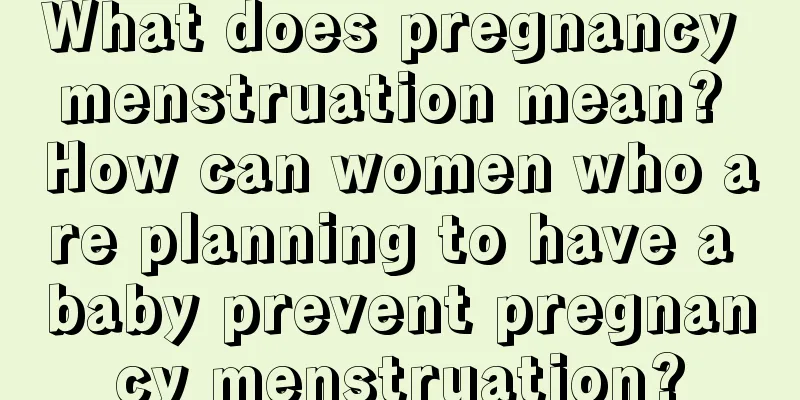How parents can build strong emotional bonds with their children

|
Recently, a research report based on a survey of 14,000 infants was released in the United States. In this report, researchers believe that 4 out of every 10 infants do not have a parent-child bond with their parents that can make the baby feel at ease. 40%! Parents, can you believe this ratio? Whether you believe it or not, the data is there, and this ratio is so high that we parents have to reflect on whether we have established a parent-child bond with our babies that can give them a sense of security? What is a strong parent-child bond?The parent-child bond refers to the emotional connection that a child has with his or her parents from birth to the age of 3. When a baby sends out a message of need (it may be crying, twisting the body, making sounds, etc.), or even before releasing any message, if the parents can respond in a caring and cherishing way (such as picking up the baby to comfort him or her, checking his or her condition, talking to the baby, etc.), the baby will feel that his or her needs are valued and met, so he or she will feel at ease, have confidence in himself or herself, and trust his or her parents. When he or she feels uncomfortable, he or she will seek comfort from his or her parents. This is the bond between the parent and the child. The stronger this bond is, the more secure the child's sense of security and confidence will be. Conversely, if there is no such a strong bond between the parent and the child, the child will not seek help from his or her parents when facing difficulties in the future. Although this emotional connection is formed in the early development stage of children, it has a long-term impact on children's behavior and emotional cognition throughout their lives. Studies have found that children who do not establish a strong parent-child bond with their parents are likely to become rude, rebellious, and hyperactive during their growth, and the emotional impact will be even more long-term. Parent-child bonds also need to be managedWhen a baby is born, it will instinctively seek its mother's breast to suckle. When it sucks milk for the first time, the bond between the mother and the baby begins to be established. When the baby needs it, he will automatically seek comfort. His consciousness of getting close to his parents is his instinctive need for parent-child bond. Therefore, the establishment of parent-child bond is an innate instinct for babies. What about the parents? When many parents hear their baby crying, they will instinctively pick up the baby, check what's wrong with him, and comfort him. This is actually an instinct. However, not everyone has this instinct. Studies have found that people who did not establish a strong parent-child bond with their parents during infancy will not have the instinct to establish a parent-child bond with their children when they become parents themselves. This means that the stronger the bond between parents and their own parents, the easier it is to establish a strong parent-child bond with their children. Even if we have such instincts and have a good parent-child bond with our parents, it does not mean that we can definitely establish a healthy and strong bond with our children. This is because human growth is affected by many aspects, especially in modern society where the children's education industry is very developed. Every parent will receive a variety of different information and thus form their own parenting concepts. When you pay attention to other aspects, you may neglect the establishment of parent-child bonds. Therefore, on the parents' side, to establish a strong emotional bond with the baby, solid efforts are required. Ways to build a strong parent-child bond: Don’t neglect contactHumans, like many mammals, need skin contact. Even adults are likely to have psychological problems such as depression if they have not touched other people for a long time, not to mention babies. Therefore, generally after a smooth delivery process, the hospital will immediately hand the newborn to the mother's arms, let him learn to suck milk, and at the same time give the mother and baby a starting point for establishing a bond. In the process of the baby's growth, although many parents in modern society are afraid of spoiling their babies, most pediatricians believe that babies under at least six months old cannot be spoiled, so parents can give him all the care you can give. Taking your baby outWe live in a very convenient society. Even being a parent has become convenient because there are all kinds of products to help us take care of babies, such as strollers, baby seats, etc. These things can not only protect the safety of babies, but also free parents from the tedious life of taking care of babies. However, at the same time, they also greatly reduce the direct contact between parents and children, and the establishment of bonds is also discounted. Therefore, the retro style has emerged, that is, to wear the baby as a piece of clothing. Buy a sling, and when you go out, you don’t need to use a stroller, but carry the baby on your back with a sling. The distance between parents and babies is so close that they can kiss each other by lowering their heads. This method greatly promotes the establishment of parent-child bonds. Night careThere has long been a saying on the Internet that the baby's closeness to a parent is not determined by who takes care of the baby more during the day, but by who takes care of the baby more at night. Different people may agree with this statement to different degrees, but when the baby wakes up at night and needs to be fed, changed, and comforted, it is indeed a great time to establish a parent-child bond. Modern parenting factions have different opinions on whether to train babies to sleep and how to train them. No matter which faction you believe in, don't forget the most fundamental point: babies also need comfort when they wake up at night. Dad joinsBreastfeeding mothers have a unique advantage, they can have close contact with their babies, thus establishing a deep emotional bond; even babies who are bottle-fed or fed with a combination of breast milk and formula are generally fed by their mothers holding them in their arms. However, babies not only need their mothers, but also their fathers, and fathers are almost born at a disadvantage because they cannot conceive or breastfeed. So parents should work together to give fathers more time to have close contact with the baby, such as feeding with a bottle, baby massage, and wearing the baby when going out. These are all things that fathers can do equally well, so that a strong parent-child bond can be established between father and baby at the same time. |
<<: What is the educational significance of Home with Kids? Home with Kids Growing Up
>>: Is spanking a child a crime? What are the effects of spanking on children?
Recommend
Is it necessary to use morning urine for pregnancy test? Can urine from other times be used for pregnancy test?
When using a pregnancy test stick to detect pregn...
How many internal examinations should be done before giving birth? What other embarrassing examinations are there before giving birth?
Prenatal checkups are normal for expectant mother...
Can pregnant women with high blood sugar eat grapefruit? What are the benefits of eating grapefruit for pregnant women?
High blood sugar in pregnant women is a disease t...
How long does it take for baby eczema to heal itself? Can baby eczema heal itself?
Newborn babies will have eczema after birth, whic...
How to train your baby to drink water? How to judge whether your baby drinks enough water every day?
As babies grow up, the focus of "drinking wa...
What should I do if my baby has less hair? What is the reason for my baby's less hair?
Many babies are born with thin, soft and yellow h...
Is Mama One Choice owned by Dettol? How many series does Mama One Choice have?
The brand Mama Yixuan seems to have only been lau...
What is the Le Boyer method of childbirth?
When we face a mother giving birth, all the focus...
9 bad habits of mother-in-law when raising children. See if your mother-in-law has any of them
A few days ago, a mother complained to Xiao Chees...
How should infants and young children supplement iron?
Calcium, iron, zinc, selenium and vitamins are es...
What characters are good for naming babies born in the Year of the Rat? Taboos for naming babies born in the Year of the Rat in 2020
There is still one month left until the Year of t...
What are the common diseases that babies get in summer? What diseases are babies prone to in summer?
What are the common diseases of babies in summer?...
What factors determine women's childbirth difficulties? What causes women's childbirth difficulties?
We often hear the saying, "Women with big bu...
What kind of pillow is good for newborns? How to choose a pillow for newborns
You should pay special attention to the sleeping ...
Vinda toilet paper product introduction Vinda toilet paper specifications and sizes
Vinda toilet paper is a brand of toilet paper tha...









